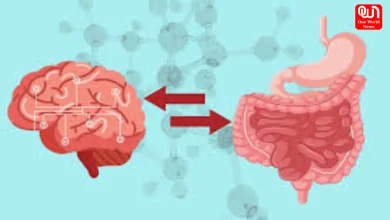How Proper Planning Can Make Low-Carb Diets Nutritionally Complete: Ensuring Essential Nutrient Intake for Optimal Health
Low-carb diets can be nutritionally complete with proper planning, offering essential nutrients like protein, healthy fats, and vitamins for optimal health.
Low-Carb Diets Can Be Nutritionally Complete With Proper Planning: Key Nutrients and Food Sources to Support Optimal Health
Low carb diet has also become extremely popular for their capacity to stimulate weight loss, enhance metabolic health and lower the incidence of chronic disease. But concerns over whether these diet were sufficient, since they typically cut out foods like grains, legumes, fruits and starch vegetables. Recent studies, however, indicate that with proper planning a low carb diet can still deliver all the required nutrients for optimal wellness.
Nutritional deficiencies in low carbohydrate diets
One of the greatest issues with low carbohydrate levels is the possibility of nutrient deficiencies. Removal of carbohydrate-containing foods results in reduced intake of essential vitamins, minerals, fiber and antioxidants required for optimal health. For instance, whole grains, legumes and certain vegetables and fruits contain high levels of fiber and B vitamins, whereas legumes and milk contain calcium, magnesium and potassium.
Low carb diet may also decrease intake of healthy plant phytochemicals, such as polyphenols, flavonoids and other antioxidants found in fruits, vegetables and whole grains that aid the body’s defense against oxidative stress and inflammation. These compounds are vital in supporting cognitive function, cardiovascular wellness and the health of the immune system.
Planning is highlighted by a new study as a way to success
A recent scientific research, printed in a reputable magazine, has determined that low carbohydrate diets are well designed to be well designed. The research compared numerous different meal plans with low carbohydrate levels and compared the amount of nutrients in subjects, while these diet followed for extended periods.
Studies revealed that individuals who were on low carbohydrate diet could get all their nutrients by strategically employing a variety of nutrient-dense foods like non-strata vegetables, fat, lean proteins and some dairy products and legumes. Furthermore, studies highlighted the necessity of getting sufficient electrolytes, vitamins and minerals to prevent deficiencies that are most often linked to low carbohydrates.
Read more: Maximizing Avocado Nutrition: Essential Tips For Healthy Eating Habits
Key nutrients of a balanced low -carba diet
To ensure that a low carbohydrate diet is sufficient, it is crucial to highlight a variety of foods that supply a variety of staple nutrients. Following are some of the most vital nutrients and sources of food which must be highlighted when planning an optimal low carbohydrate catering program:
- Healthy Fats: avocados, olive oil, coconut oil and oily fish (salmon and sardines) carry the heart-healthy omega-3 and omega-6 fatty acids that our brains need and reduce inflammation.
- Proteins lean: eggs, poultry, fish and grass-fed meat are an excellent source of high-quality protein that the body needs to repair muscles, fight off disease and repair the body.
- Nestarchy vegetables: leafy greens, broccoli, cauliflower, zucchini and peppers contain less carbohydrate, but are high in fiber, vitamins and minerals. These vegetables are rich in beneficial antioxidants and guard against the deprivation of nutrients that happens when food -rich foods are restricted.
- TDAIRY and Nonterital substitutes: cheese, yogurt and other dairy products contain a high content of calcium and vitamin D, which are critical to bone health. These are present in non -daring substitutes like almond milk or coconut yogurt when fortified.
- Electrolytes: low carbohydrate diet may cause electrolyte imbalance, therefore potassium -rich foods like spinach, avocado and fungi, and magnesium -rich foods like almonds and leaf green should be included.
Read more: Prostamax Peptide: Potential Implications in Scientific Research
Conclusion
Low carbohydrate diet is wrongly perceived as nutritional inadequate, but recent studies indicate that with careful planning and attention to food sources of nutrients, both can be both effective and completed. Low carbohydrate dieters should ensure that they get a range of vegetables, healthy fats, lean proteins and fortified dairy foods or alternatives for all their dietary needs. Planning and selection with the knowledge that low carbohydrate diet is conducive to long-term health and well-being at the cost of nutrient consumption.
We’re now on WhatsApp. Click to join.
Like this post?
Register at One World News to never miss out on videos, celeb interviews, and best reads.








